The Inside Story: How Ali Abdaal became a published author
And a guide on how you can do it too (probably)
If you've ever been curious about the process of becoming a successful author, this case study mega post is exactly what you need. I share how it all works step-by-step, and what you should be focused on for best results.
(Update: I've just finished developing a fun quiz for you: Discover what kind of author you’d be with my Author Profile Analyzer!)
Let’s dive in!
Contents:
1. Meeting Ali
2. Ali’s Path to Publishing
3. How the publishing industry works
– Hasan’s primer to the publishing world
4. Ali’s Journey from Proposal to Bestseller
5. What was Ali Abdaal’s unfair advantage?
6. The Challenges Ali Faced
7. The Secret to hitting The New York Times Bestseller List
8. The Impact and Future of Publishing
Bonus: Examples of other ‘Transformational Creators’ I’ve worked with
Summary Action Steps
Total read time: 17 min
1. Meeting Ali
Ali and I first met back in March 2020 when he invited me to discuss my book, 'The Unfair Advantage' on his YouTube channel.
At the time, I was in book launch mode, with a lineup of media appearances, podcasts and university talks. Ali, with half a million subscribers (a number that now pales in comparison to his current 5 million), was just one stop on this whirlwind tour.
But there was something about Ali that made me particularly look forward to this interview. I’d checked his channel out and was drawn to his vibe – a blend of relaxed, nerdy doctor with an affinity for Harry Potter and Disney songs, and an underlying desire to avoid a mundane 9-5 life. He reminded me of someone – me.
I pushed the intercom to Ali’s apartment, and a familiar 'Yo' greeted me. He buzzed me in, and there he was, clad in a pink hoodie, his trademark round glasses, and his signature messy hair. He was casual and welcoming, and it was just him there at his apartment, no assistant, no camera operator, even his roommate was out.
This is before Ali had a team. He was still doing everything solo, with his living room serving as his studio. He’d set up a small round table with cameras and microphones and a big light in the middle. “What struck me is how well the book describes my success,” he said as he fiddled with the recording equipment (Ali’s unfair advantage on YouTube had been his ‘Status’ as a Cambridge medical student).
As expected, we hit it off. Ali’s humility and eagerness to learn was obvious, despite having an already successful business (6med, his med school prep company). He had a beginner mindset, in a good way. And the questions didn’t stop once the cameras stopped rolling either, they only got deeper as Ali was hungry for my perspective.
Our commonalities were obvious, he was a newly qualified doctor, and I’d actually dropped out of university on the path to becoming a doctor. He was fascinated that I’d been a free man and a quasi-digital nomad for 6 years at this point, having escaped the cushy corporate career trap. Both of us had been drinking the Tim Ferriss Four Hour Work Week kool-aid.
We stayed in touch, through the lockdowns and general pandemic craziness.
And his interview actually ended up being my last in-person book launch thing. In all the craziness of March and April 2020, all my subsequent appearances, speaking events and interviews weren’t even being postponed, they were just straight up getting cancelled.
“Oh well. You couldn’t have predicted a pandemic. Hope the book does well anyway!”
A couple months later, Ali’s video of the book came out. It was great and the view count was climbing fast. We were clearly on to something with the book concept. And despite the book promo tour being cancelled, YouTube videos about the book, like Ali’s, were going viral. So the book ended up doing great. Five-star reader reviews came pouring in.
The next time Ali and I met in person was in the summer for brunch, once restrictions eased up. Over poached eggs and hollandaise, Ali mentioned he was thinking about writing a book, but was unsure if he’s ready for it. He had a ton of imposter syndrome, and didn’t know what he should write exactly. This is also when he heavily hinted that he was looking for a business coach.
So I took him on as a client. First order of business was dismantling the subconscious belief he had that he’d be some sort of sell-out if he charges a premium price for his online course. (Courses are the only thing I love more than books btw). And after the very successful launch of The Part-Time YouTuber Academy, we focused on his author journey.
2. Ali's Path to Publishing
I taught him all the things I wish someone had taught me: how the publishing industry works, how to structure a book, how he should urgently get a literary agent and not sign directly with a publisher, that he needs to focus on one big idea, and ruthlessly cut out all the other things from the book, the difference between a concept and a theme, that he needs an extremely solid book proposal, target readers, competing books, etc etc etc.
We went through it step-by-step, spending a solid 4 months just ideating, honing and refining the book concept.
Ali was bashing out some of the book writing, here and there in spurts and starts, just to figure out what he wanted to say exactly. He knew he wanted to make the book about productivity, and he started with a concept (and metaphor) of the pilot, the plane and the engineer, then that changed to ‘The Productivity Equation’, then that morphed into ‘The Fun Factor’, a working title which had a system in it called GAMES (an acronym — you can see us having come up with it on the white board in the pic below).
At one point he thought of making it all about different hormones and using those as a sort of metaphor for what you need (oxytocin, dopamine, serotonin, etc). And I’d poke holes, question, and work as a sounding board and idea developer with him. And it went on like this till we had something solid.
3. How the publishing industry works
So how does it work?
My advice to anyone thinking of writing a nonfiction book is to start with the book proposal, essentially a business plan for the book. I come from a tech startup-y background and basically it’s very similar to putting together a startup pitch deck to raise funding from investors. Think Shark Tank (or Dragon’s Den), but for a book. Publishers, just like investors, ‘bet’ on you by signing you and giving you an advance on the royalties, which is very similar to ‘funding’ you in tech startup land.
And just like most startups, most books fail. Most don’t even earn back their advance. So the publisher loses money. Which explains why they have to be so picky, and why it’s so difficult to get a book deal.
And not only do you have to convince publishers that you have a good product (a great book), you’ve also got to convince publishers that your book is going to sell. That you have a marketing plan in place to get people to buy the book.
So it’s just like with any product, there are two main things to get right, the product itself and the marketing of the product. It’s no use having one without the other, and most first time authors I’ve known and worked with focus exclusively on the book itself. What’s the idea? Is it good? Is it compelling? Is it a page turner?
That’s damn important. But it’s not the only thing. People need to know that the book exists, to give the book a chance to have some word-of-mouth growth.
So Ali followed my advice, got a literary agent, and we worked on making the book proposal as solid as we possibly could.
I advised him what to negotiate hard on, and what mattered much less in the book contract. How much to give to literary agents, and when to look for when searching for one. Whether or not to get a publicist or hire a PR agency. Whether or not to retain US book rights to sell separately like I did, or do a worldwide rights deal. Even whether or not to retain movie rights etc.
So what the hell is royalties, and advance on royalties, and agents and publishing deals? This all sounds like a foreign language.
Hasan’s primer to the publishing world
The biggest misconception is that you need to write a book, then try to find an agent or publisher after. Wrong. Non-fiction books are sold on a book proposal before the book is written. The proposal includes the elevator pitch of the book, an outline, a table of contents, author profile, sample chapters, and information about the target market and competing titles.
Most publishers won’t even bother looking at authors who aren’t represented by agents. Literary agents pitch you to publishers, negotiate contracts, and fight your corner. They take a percentage of your royalties, something like 15-20%. They are paid only when you are paid, so being signed by a seasoned agent is a win.
Your platform is your visibility and authority in the subject area of your book. Your ‘thought leadership’. It includes your audience, your email list, your following on social media and YouTube, your speaking engagements, your ability to get media, and your overall presence in the field. Basically your unfair advantage of ‘Status’ – your ability to get the word out and make books fly off shelves!
Traditional publishers are brilliant at making the actual physical (and digital) book look and feel amazing, including cover design etc. Crucially, they’re also great at selling you into bookstores around the world. They are not, however, great at actually marketing directly to potential readers. That part is down to you.
Your book deal or contract is the legal agreement between you and the publisher. It covers rights, royalties, advances, terms of publication, and other legal aspects. You’ve got to understand and negotiate your contract carefully. That’s where a good agent comes in.
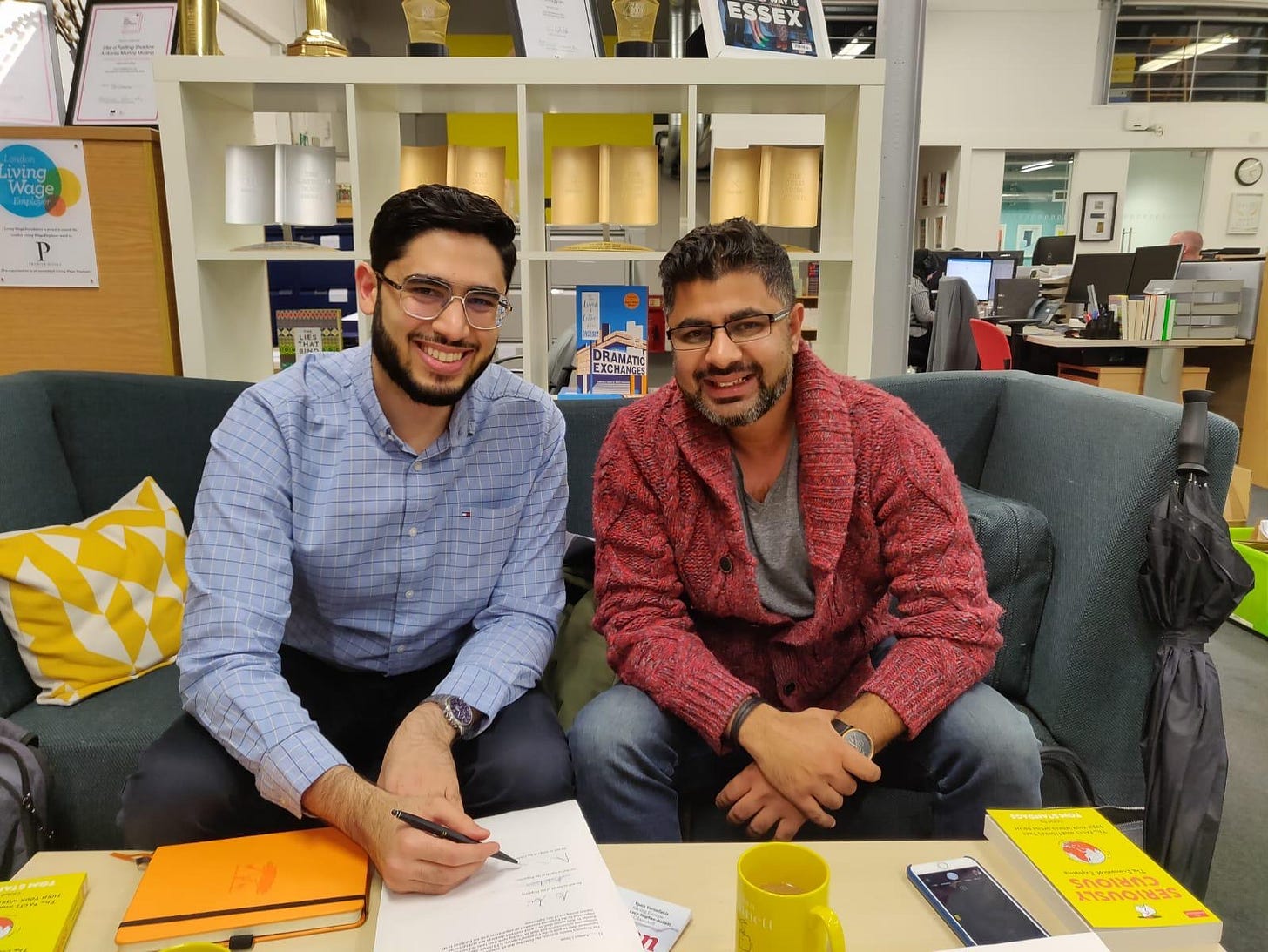
The advance is the money paid upfront to you, the author, before the book is published. This is a bit like getting an investment. The way it works is that it’s an advance against royalties, meaning it’s deducted from future royalties earned from book sales.
Your royalty is how much you’re paid per book sold. It’s anywhere between 7-15% of the book’s list price – more for audiobooks and ebooks. Royalties are paid after any advances are ‘earned out’.
To explain, let’s run through a simplified example:
Suppose you get a $50k advance and book is priced at $10 with 10% royalties. That means you will be earning a dollar per book. So therefore it is only once you’ve sold 50,000 books (and therefore ‘earned out’ your $50k advance) do you then start earning royalties after that.
An alternative to traditional publishing is self-publishing. This requires handling or outsourcing all aspects of the publishing process, including editing, design, distribution, and marketing. Most self-published authors use Amazon’s self publishing service. We were actually planning on doing this for The Unfair Advantage, before agents started showing interest. There’s also hybrid publishing which is a sort of in-between as well.
4. Ali’s Journey from Proposal to Bestseller
So back to Ali’s story, once we’d nailed a concept that really resonated with Ali, one main idea that he wanted to share, everything else became so much easier. Once you have a SOLID concept, the next thing to focus on is your book structure.
Book structure is absolutely crucial and it’s difficult for me to overstate its importance. How you structure your book, how you structure the knowledge that you want to share, is as important as the content itself.
Structure is another thing that you have to have a very clear picture of, and are forced to refine and hone when writing your book proposal.
5. What was Ali Abdaal’s unfair advantage?
So how did Ali get a book deal? What was his unfair advantage to becoming a first time author?
Well, and I’m sure you already know this, it’s his huge platform of course! By the time publishers were offering him deals, he had over a million subscribers on YouTube. A large audience online is a huge ‘Status’ unfair advantage, as your network, your fame, your following is a big part of your Status. And Ali didn’t just have YouTube, thankfully he’d also been getting subscribers to his newsletter. (An email list is a very powerful thing).
So of course that helped him get a deal with Penguin UK and MacMillan in the US, and got paid a nice meaty advance well in the six figures.
What else did Ali have going for him? Well he wasn’t just a random influencer or creator, doing skits and being funny for example, he was an educational creator, and to be even more specific, I have a term for this, a Transformational Creator. It means he isn’t just teaching stuff like physics or history, a transformational creator directly helps their audience level up their lives. Transformational Creators are also aspirational as well. They practise what they preach. They walk the talk.
6. The Challenges Ali Faced
The biggest challenge or obstacle for Ali at the beginning was the classic: Self doubt. He kept confessing to feelings of “who am I to write a book”. In other words: Imposter syndrome. This is true for most of the aspiring authors I’ve worked with. I simply remind them, just as I did with Ali, that you don’t need to be the actual foremost academic expert on the matter. Instead, think of it as you’re writing to help the reader to level up in their life. What helped Ali was writing it as if he was writing the script for one of his YouTube videos. That ‘lowered the bar’ in his head so that he could get the first draft done at least. Then it’s much easier once you have that.
The other challenge is finding the time to write. Prioritising it enough. This is a problem for ALL my clients, and was a huge problem for Ali and even for me as well. Ali began by trying to start a daily writing habit, with limited success. And of course, using tricks that are now in the book, and reminding himself in our sessions of why this is important to him always helped realign his goals. And accountability, be that in the form of deadlines, commitments, whatever it took to apply pressure to get the writing done.
One of the main difficulties in writing a book, and what makes it so tough is that the feedback cycle is so long. Unlike a piece of content that you publish online, you publish and get feedback straight away, not in 3 years! One trick we used is leveraging his audience to create accountability by committing to writing in public ‘power hours’ where Ali showed up and did his writing on a livestream which his audience could see.
Finally, Ali also had the unfair advantage of money, earned from his channel and online course, which meant he was being able to hire researchers, a coach (me) and even a second editor.
7. The Secret to hitting The New York Times Bestseller List
You wanna know the secret?
One word: Sales velocity.
Getting onto the bestseller list is essentially all about concentrating as much of the sales as possible in the pre-order and first week. If you can hit somewhere around 2k-6k sales in that first week, you have a good chance of making it on the NYT list (less for the Sunday Times list as the UK is a smaller market).
Ok, well how do you do that?
By having a sort of ‘launch team’. Essentially you rally all the creators and influencers you know, or have been introduced to, and have interviewed on your podcast, and you ask them to help out. They’d usually oblige, as you’ve built relationships by this point hopefully, and also if you’re growing an audience and email list, they’re going to want your help when their book comes out.
You go on their podcasts, and go out on their email lists, and do media and interviews etc, and concentrate it all on pre-orders and first week sales.
There’s also bulk purchases from companies. That helps A LOT. So speaking at companies, and getting them to bulk order books for their employees.
And that’s it.
Easy right? 😜
In all seriousness though, this is why platform is such a huge unfair advantage, especially in hitting these bestseller lists. It’s about planning a marketing campaign meticulously, and promoting the hell out of it. In fact, if Ali had gone harder, he could’ve hit actually hit number one on both bestseller lists I reckon, but he’s too British and understated to promote so heavily.
8. The Impact and Future of Publishing
Ali’s book, Feel Good Productivity, already has thousands of rave reviews on Goodreads and Amazon. A testament to all the hard work he put in, specifically how important a strong concept (one main idea) is, understanding the theme that emerges, and being focused and disciplined enough to cut out everything that's not on-theme.
There are only going to be more and more creators getting publishing deals. In fact a lot of publishers are actively reaching out to educational and Transformational Creators with big audiences (if this happens to you, congrats! Don’t forget to get a literary agent first before you sign anything 😅).
Me personally, becoming a published author has absolutely changed my life for the better, and opened doors that would've been completely out of reach. I’ve been able to meet incredible people, been invited to speak at conferences and companies all around the world, (I just got back from a luxurious trip to Riyadh, Saudi Arabia to speak at a huge conference there), I’ve spoken at and worked with huge corporates like Google, EY, and WeWork, and at top business schools like Imperial and UCLSoM. I’ve gotten loads of clients out of it. Launched online courses. Met the most incredible authors and transformational creators. And most gratifying of all is all the emails I get every day from people all around the world who say my book has changed their life.
On the one hand, you can think of your book as an artistic expression of yourself, to make your mark, have a legacy piece, and make something that lasts that you can be proud of. And on the other hand, more commercially, a book is a far more powerful ‘business card’ for you than anything else, ever. You can get the unfair advantage of ‘Status’, recognition, authority, thought leadership, clients coming to you, invitations to conferences and to speak at companies, etc. Once you're a Bestselling or Award-winning (or even NYT Bestselling) author, you're that for life. Both sides of these benefits have been true for me.
So if you're thinking of writing a book, if you have a book within you, go for it. They say the book that changes your life the most is the one you write.
Bonus: Examples of other ‘Transformational Creators’ I’ve worked with
A great example is another absolutely huge creator who I’ve had the privilege of getting to know: Marina Mogilko. She is a great example of a transformational creator with 10M+ subscribers across her three YouTube channels.
So if Marina goes ahead and decides to write a book, she’s not likely to struggle to get a publishing deal, or even to hit the New York Times bestseller list.
The adage in publishing is that your platform is everything. And yeah, platform is hugely important. But you can do it without one.
Exhibit A is me and my co-author Ash. We did not have much of a following to speak of at all. We didn’t have fame. We hadn’t really shared our success on any social media. And yet we managed to get three top publishers going into a bidding war for The Unfair Advantage.
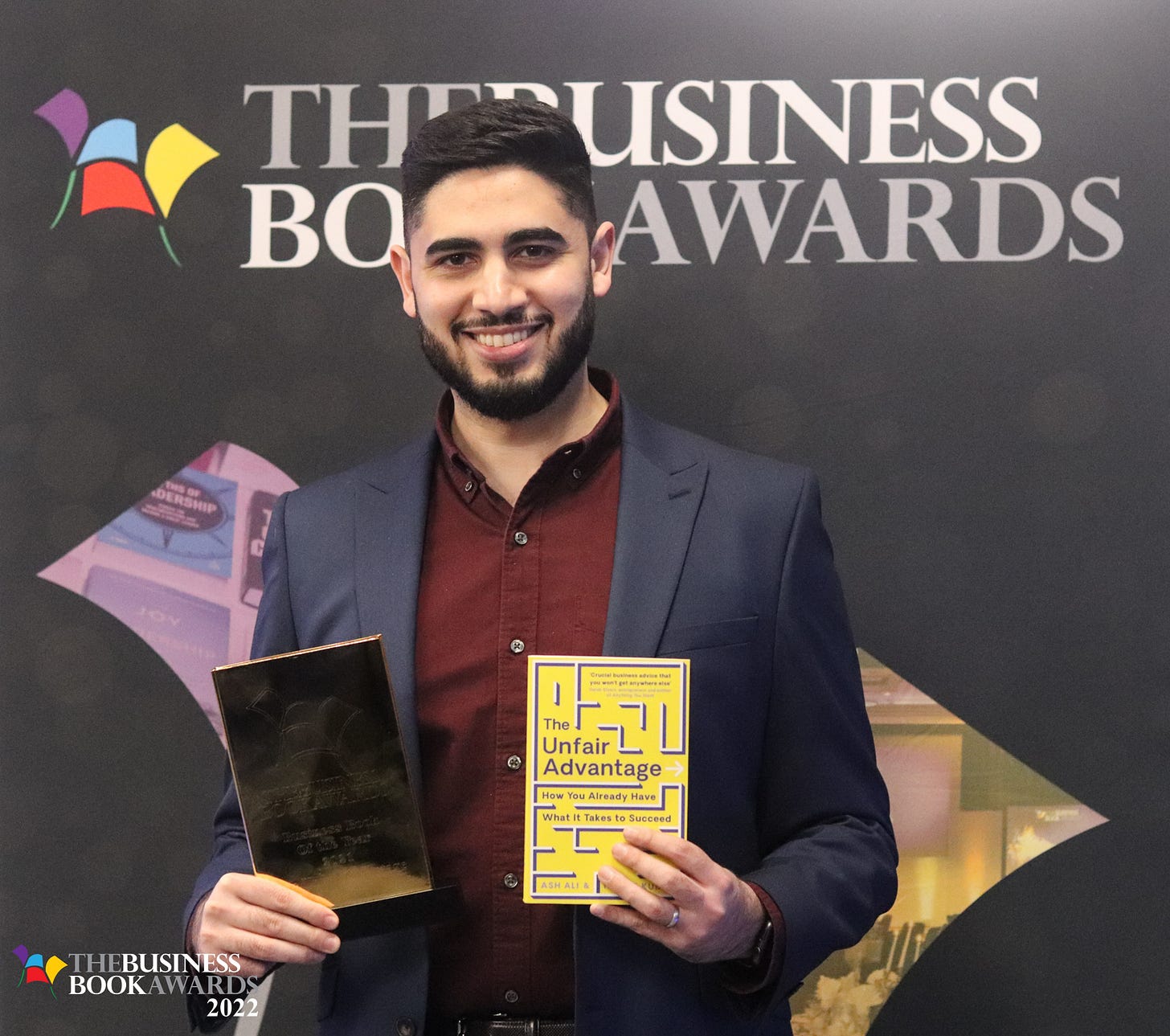
And that’s from the power of a strong concept.
Not only that, but I’ve done this for my clients as well.
One of my clients, Garrett Gee, not only got signed to a literary agent with basically zero online following, but he got a publishing deal as well! His self-development book which I worked with him on, The Hacker Mindset, is coming out in June this year.

Another client had just a small email list based on his substack newsletter, and got signed to a literary agent as well, and we’re literally waiting to hear back from publishers right now.
There’s no guarantee of course, and it’s definitely better to have a following, but just wanted to show that it’s possible.

There’s also another client of mine who had a relatively modest following on TikTok and Instagram, and based on that got a literary agent and a two book deal!
So whether you have a platform (a following) or not, it’s possible.
Summary Action Steps
Reflect on Your Unique Insight: Begin by identifying the unique knowledge, experiences, or perspectives you have that you’d like to share.
Develop Your Book Concept: Based on that insight, develop your concept. It helps if you have a coach or mentor at this stage.
Structure Your Book: Based on your concept, plan the structure of your book.
Craft a Solid Book Proposal: Use the concept and structure to write a full book proposal that includes competitive analysis, author profile, and sample chapters.
Find a Literary Agent: Be introduced or do cold outreach to literary agent who might agree to represent you based on your book proposal.
Keep Building Your Platform: Continuously work on creating content that attracts followers and subscribers
Prioritise Your Book: Do any research required and get your fast draft written ASAP.
Develop a Marketing Strategy: Create a comprehensive marketing and launch strategy.
Complete a Book You’re Proud Of: Through honing and refining multiple drafts, and with a good editor, produce a book that you’re proud to put your name on.
Finally, Launch and Your Book: The work is not over as this is when you do as much promotion for the book as possible. You’ll be nervous and excited.
I’m often asked if I had always dreamed of becoming an author, and my answer is yes, I did. But I honestly imagined writing a book when I was much, much older, with grey hair and a big ‘Platform’ online. I never imagined that I’d get a book deal while in my twenties, and with no platform at all.
It’s possible, if you want it badly enough.
And remember what I told Ali, you don’t have to be the foremost academic expert or be the best in the world on a topic to write a book about it. You can share your perspective, share your idea, and as long as it’s true and helps the reader level up in their lives from it, it’s valuable.
I look forward to seeing your book on the shelf in the bookstore one day.
Godspeed! 🫡
—Hasan Kubba
P.S. I’m opening up literally just 2 slots for author coaching right now at time of publication. If you’re interested in working with me on your book concept, proposal, get intros to literary agents, get feedback, get a marketing plan, etc, and you have the unfair advantage of money to invest in professional coaching, book in a time for a free strategy call.
P.P.S. If you’d like to understand your strengths and weaknesses as a potential author, take my new Author Profile Analyzer quiz which will give you an instant custom report on what kind of author you would be, and what you have to work on.

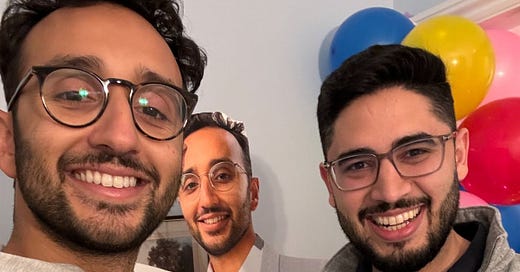



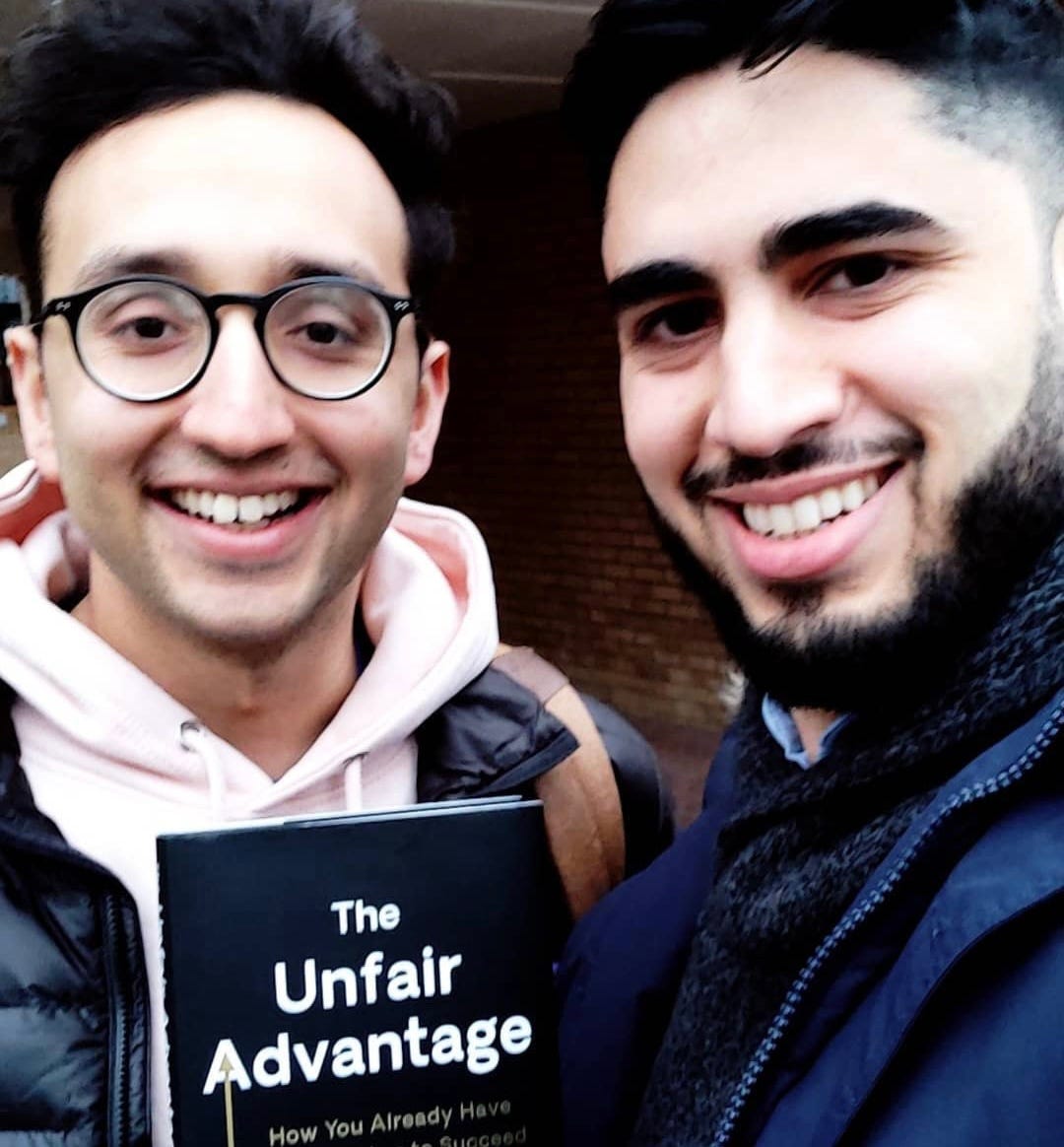
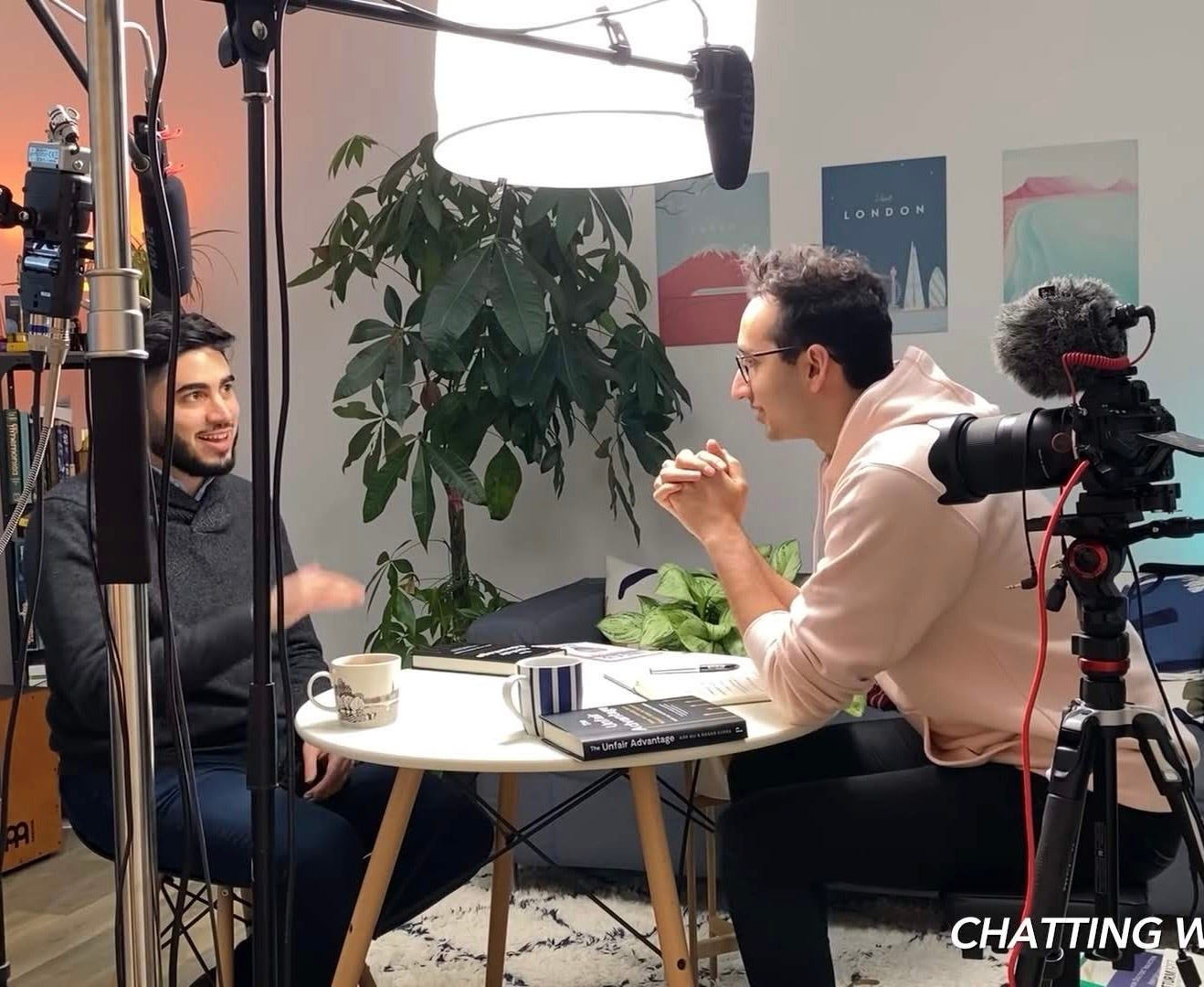
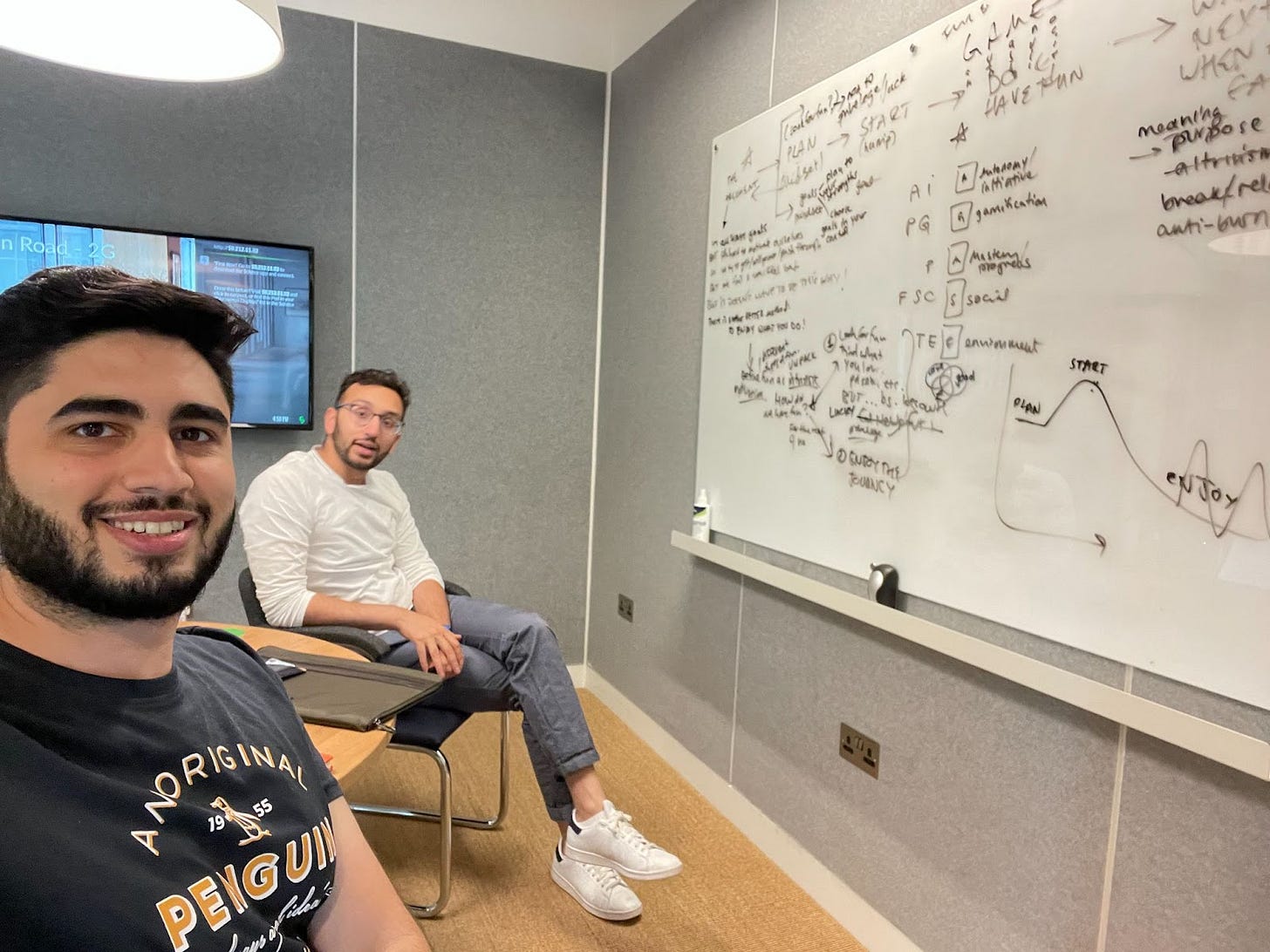
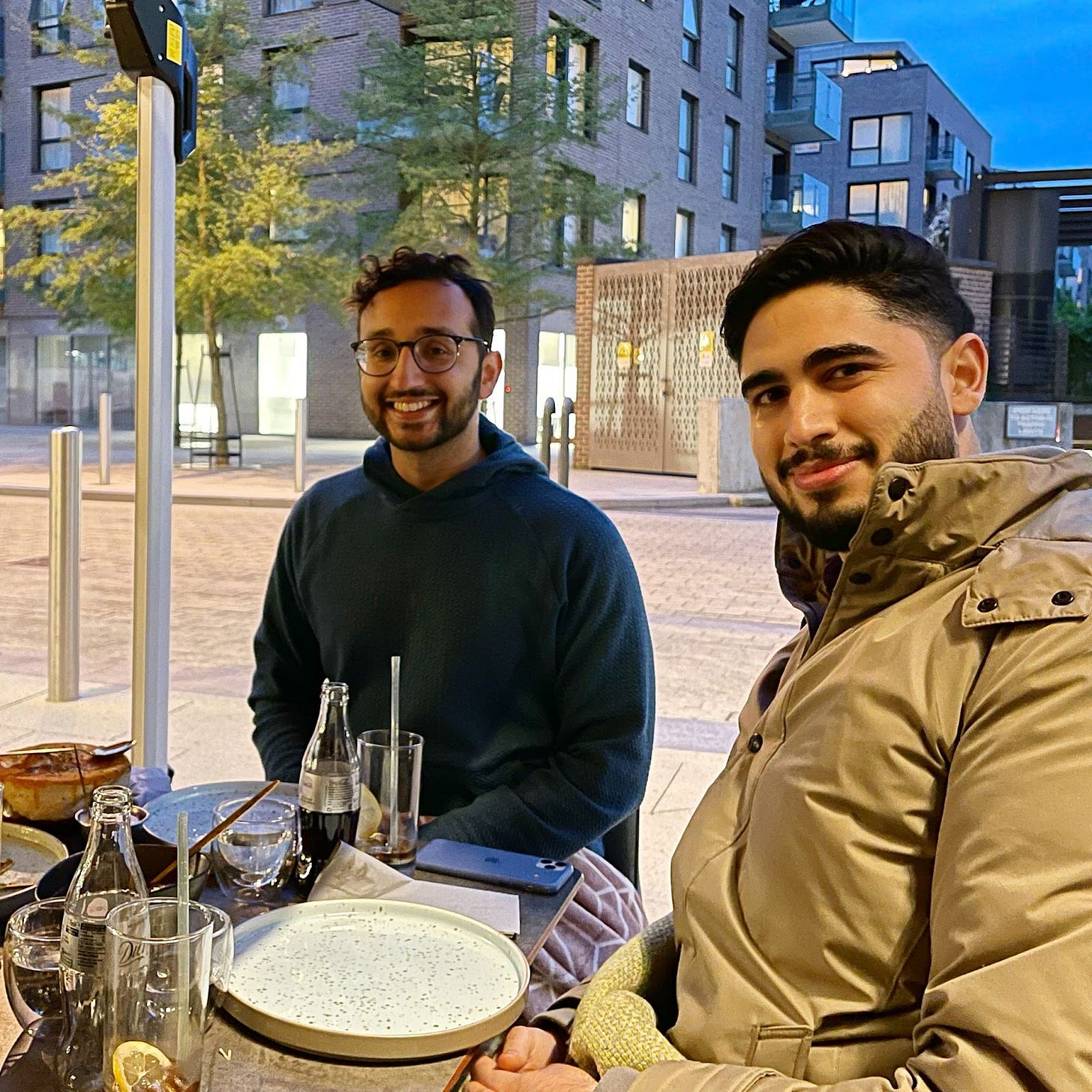

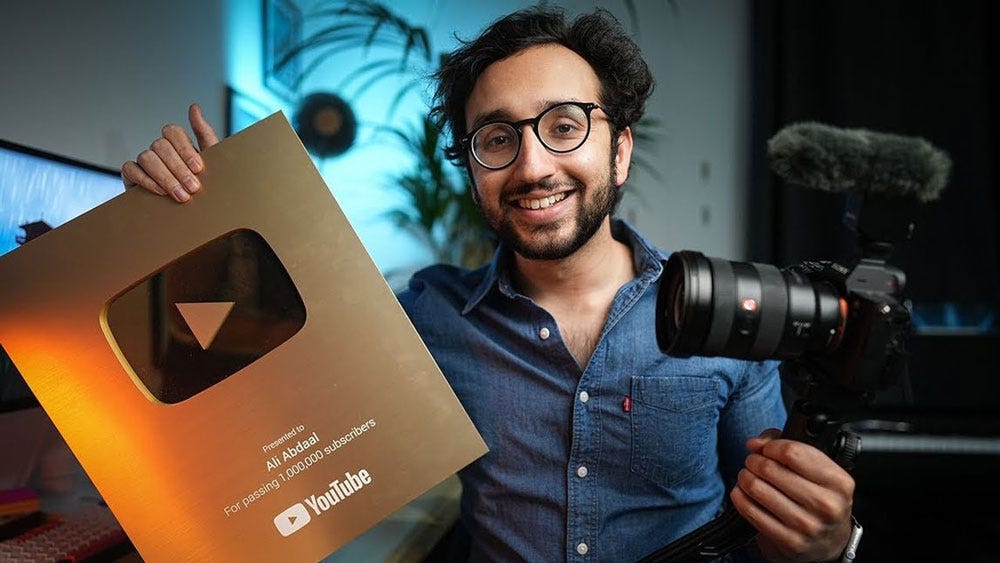
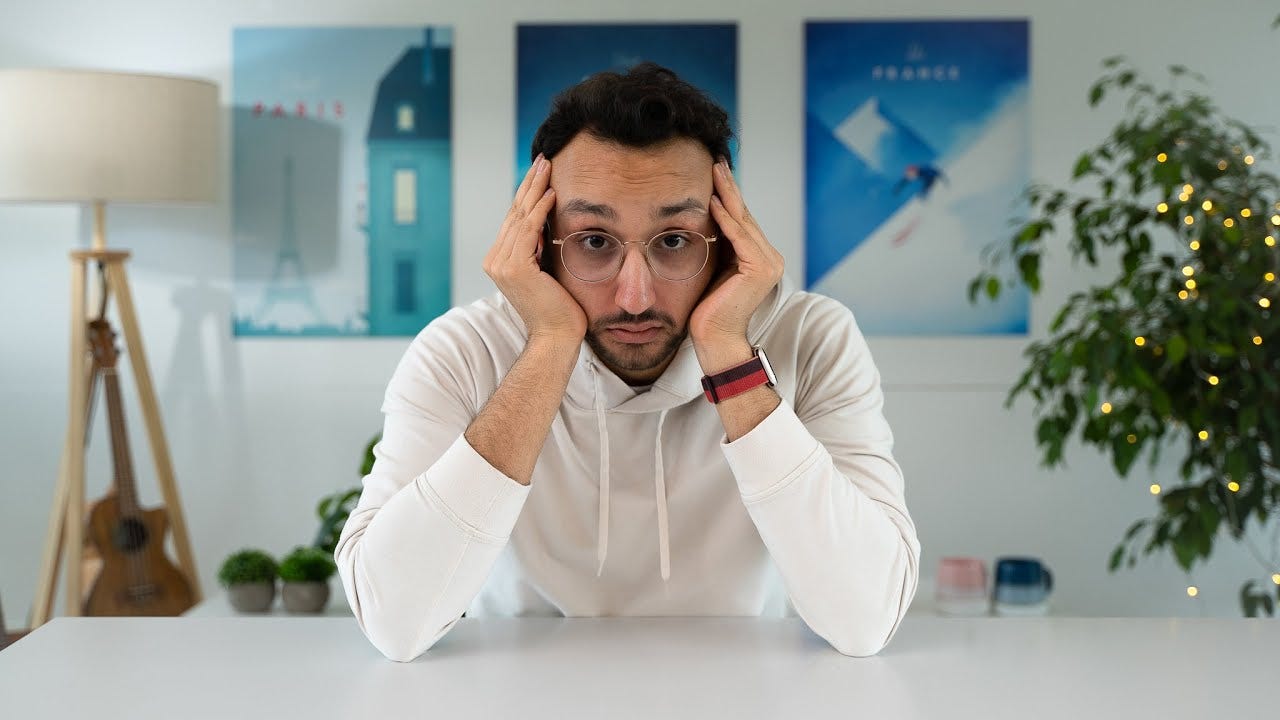
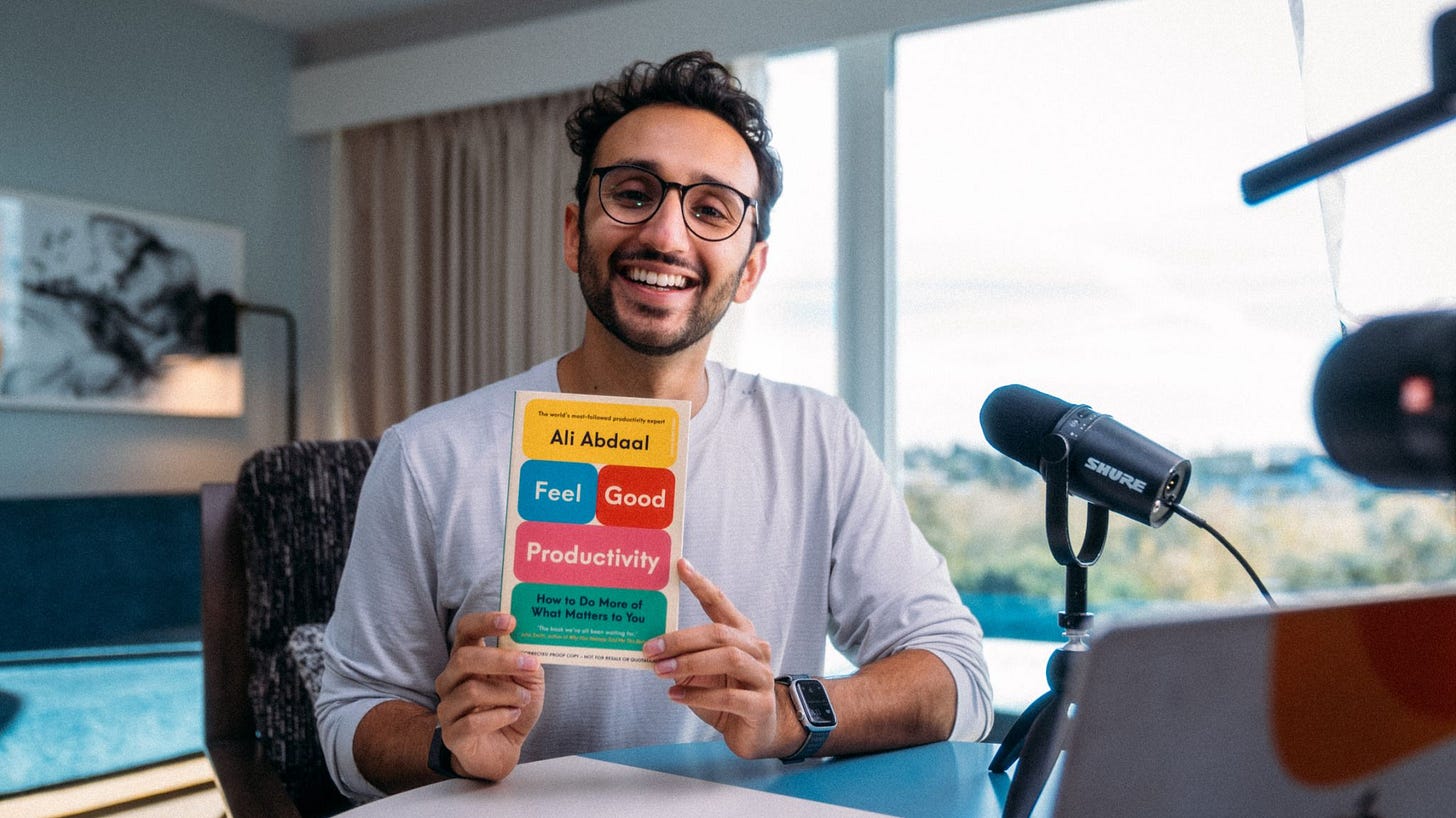
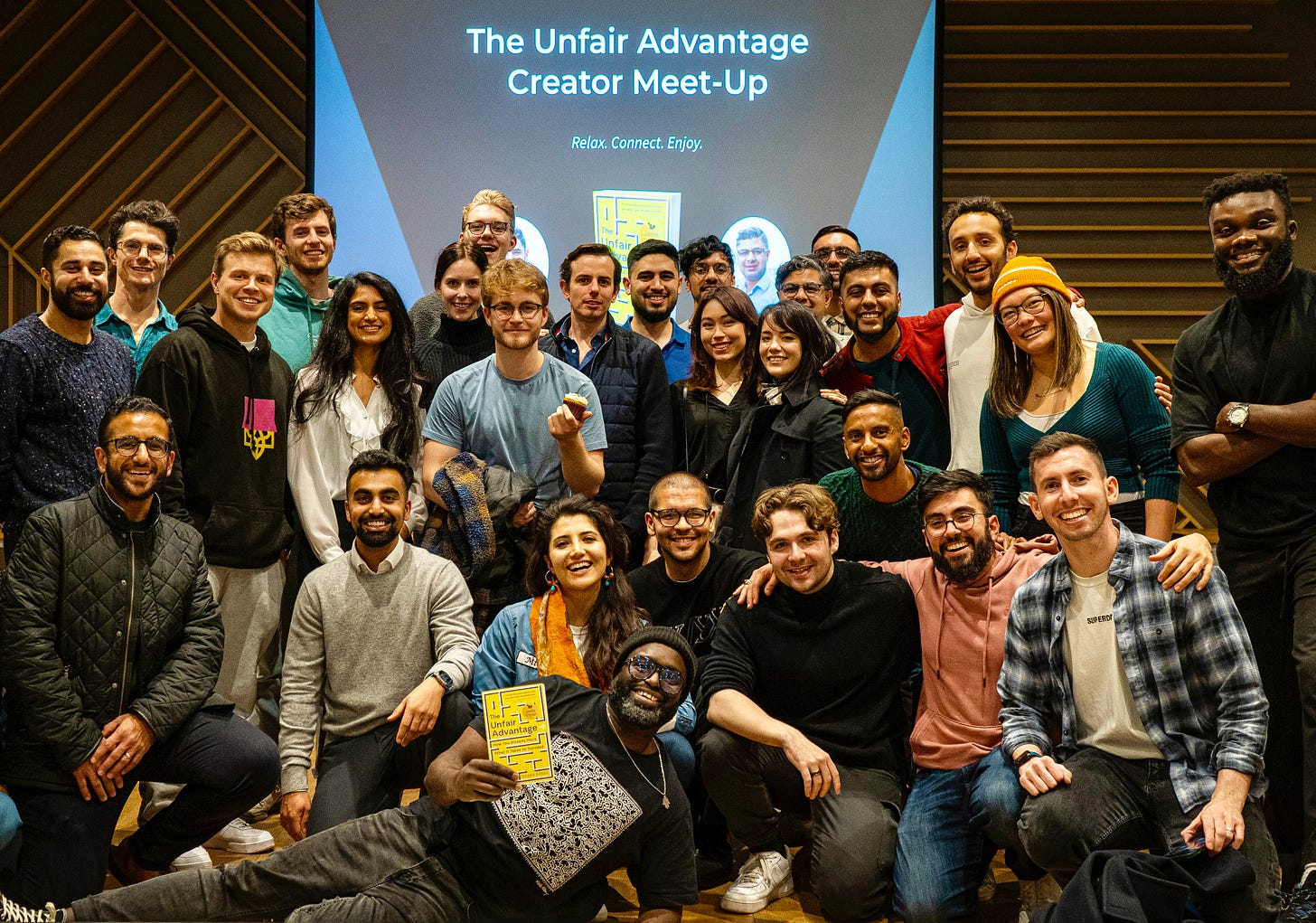

Here it is my first and I enjoyed reading this article
Thank you for generously sharing these details.